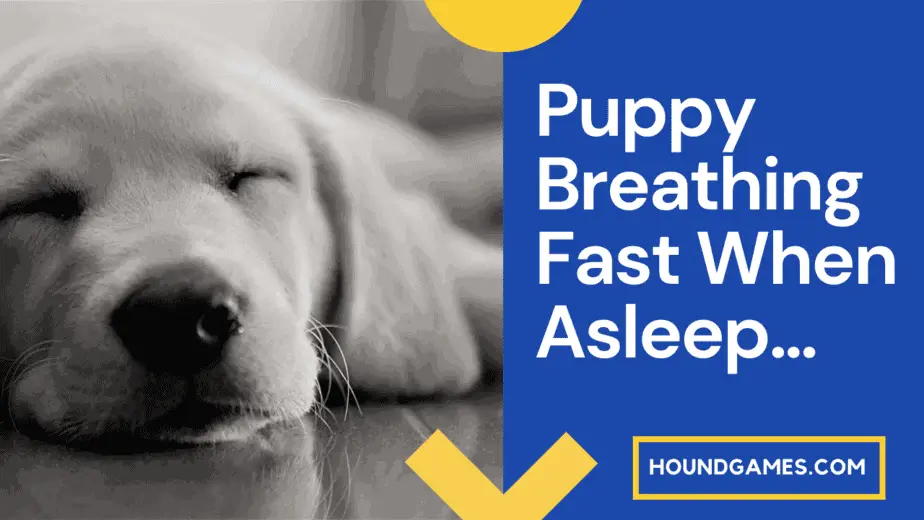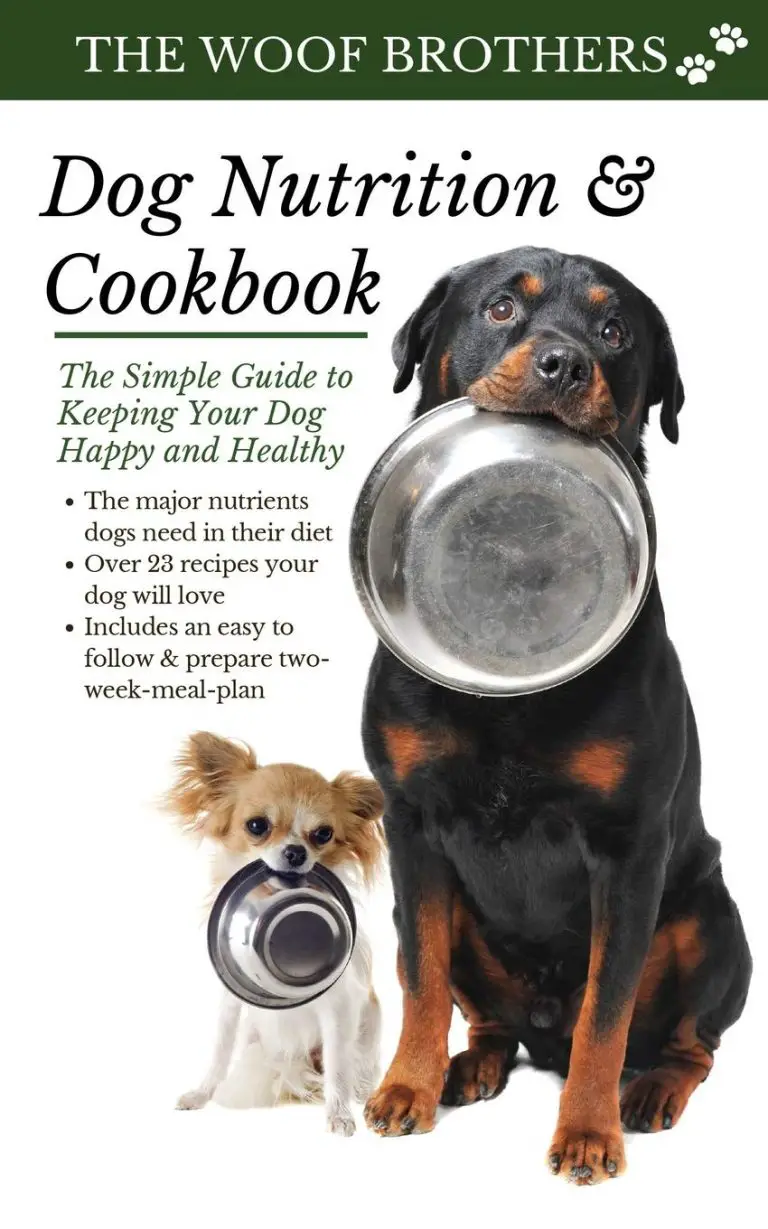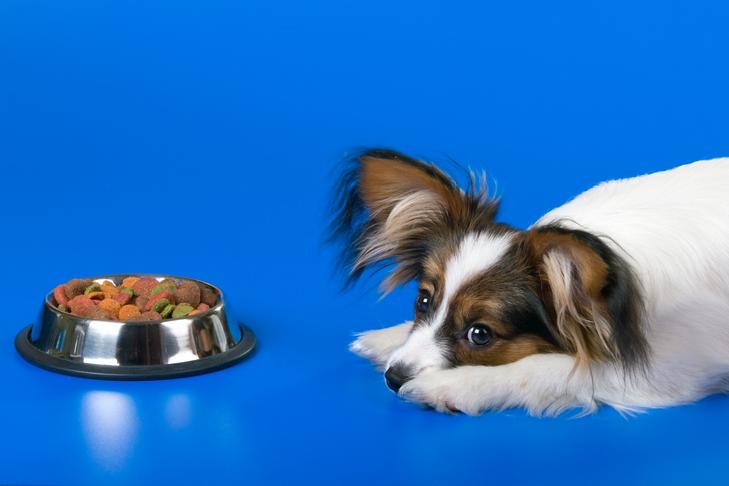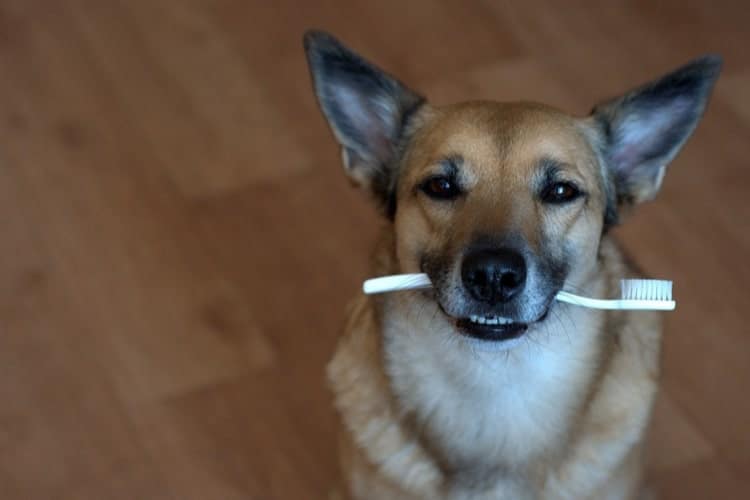Raising a puppy is a huge responsibility to have. Not everyone can handle the burden of handling all the matters related to a small animal’s health. Anything that starts to go wrong, you begin to worry that something may have happened to the small life that you’re in charge of.
You might often wonder, why does my puppy breathe so fast? This breathing may scare you, but you have to remember that the best steps to take right now are to handle the situation and not panic too much.
When I first got a dog, I would often find myself wondering the same. I got scared because its little life was all my responsibility, and he needed me to take care of him. Dogs may try to communicate to you when they’re hurt or scared, but sometimes it’s up to us to break down the signs behind what they do and figure out if there are any reasons to be concerned.
Not every instance of your puppy breathing fast is a serious threat to its life. It can sometimes happen due to exercise, or when your dog is very excited or nervous. Other times, the reasons could be pathological, which means you have to visit a veterinarian as soon as possible.
The main thing that you have to keep in mind as a dog owner is that you must understand the context in which your puppy starts breathing fast. If you know it is not a situation where he should be panting or exhaling rapidly, then you know for sure that it is something to be concerned about.
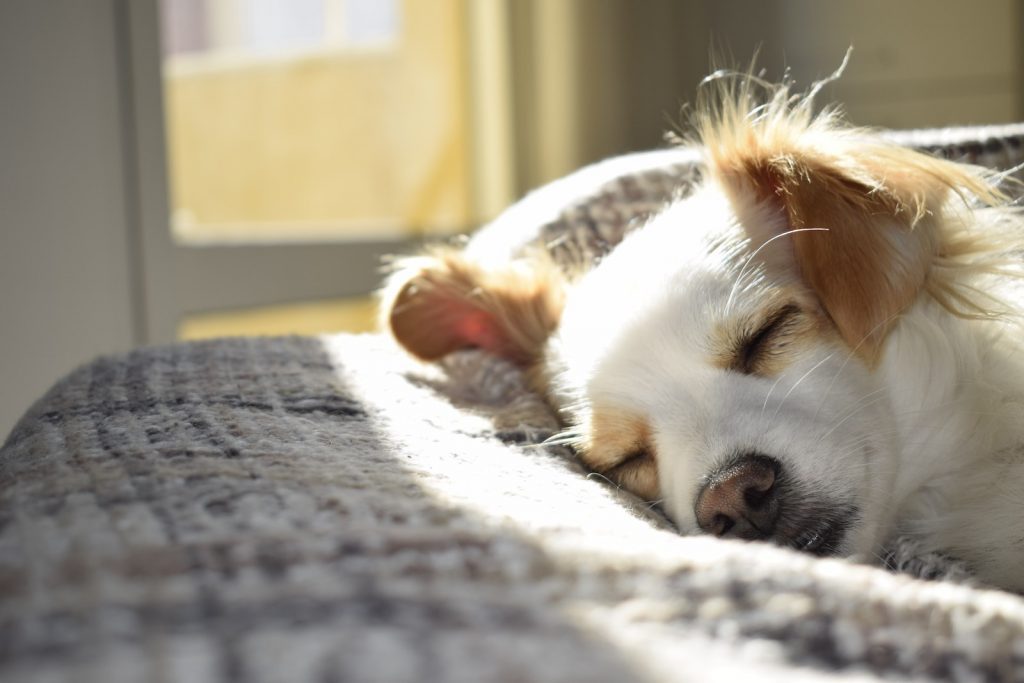
Are Puppies Supposed to Breathe Fast?
Like mentioned before, puppies can sometimes breathe fast because of physiological reasons or pathological reasons. The physiological reasons are not necessarily worrisome because they can happen from excitement or anxiety.
If you’ve recently gotten a new puppy, it might exhibit fast breathing more than an older dog you may have had. This is because they’re scared and are living in a new place. This kind of panting may go away with time, as long as you keep a close eye on your pup’s activity and make sure it isn’t happening even when they’re at rest and in a stress-free situation.
One pathological condition, known as Tachypnea is when an animal exhibits unusual and swift breathing. Many veterinarians will use this word to describe the way your puppy is breathing if you take him in to see the vet with this condition.
To answer this question briefly, yes, some puppies are supposed to breathe fast because of the breed that they are. In general, puppies also breathe more quickly than a grown dog because they are always running around, are extremely emotional, and have tiny bodies that have to handle all these emotions and exercise at the same time.
The more important thing to know is the context of when your puppy is breathing fast. If the situation seems like the kind that would stress him out or excite him, then it’s nothing to worry about. If it is an ordinary day and you suddenly notice him breathing harder than usual, then this is not supposed to happen.
What Is a Puppy’s Normal Breathing Rate?
The best way to know whether your puppy’s breathing is a cause of concern or not is by knowing what normal breathing usually is.
For the majority of dog breeds, the American Emergency Center says that they should be taking between 10 to 30 breaths per minute. If you have a puppy, their breathing maybe around 15 and 40 breaths per minute.
How Can You Measure the Puppy Breathing Rate?
You can usually tell if your puppy’s breathing is unusual just by checking the rise and fall of his chest. However, this won’t help you figure out the exact rate. The most reliable way to do this is by first making sure that your puppy isn’t visibly panting.
When they have their tongue sticking out, it becomes harder to measure the accurate breathing rate. You’ll have to wait until you find a time when he’s relaxed and not breathing with his tongue out.
This is going to be more difficult than it sounds, but it’s vital. Knowing what the average breathing rate of your puppy is when he’s relaxed will help you automatically figure out whether their breathing rate is higher than normal.
You have to calculate his breathing for an entire minute to get a reliable estimate. Wait for a time when your puppy is sleeping or lying down quietly and calmly.
Look at the way his chest is rising up and down and how the air is moving in and out. Take one breath to mean one full cycle of air moving in and then coming out. Take out a stopwatch, on your phone or anywhere, and time it to stop at 30 seconds.
Now, count how many breaths your puppy takes in these 30 seconds. Once you’ve counted how many breaths there are in 30 seconds, you’ll easily be able to multiply that by 2 and know how many breaths the puppy approximately takes in one full minute.
If your puppy is extraordinarily active and restless, and you can’t get him to sit still for even 30 seconds, you can aim to get the number of counts in 15 seconds and multiply that by 4 instead. It’s always better to count the breaths more a greater number of times, but if this is the only way you can manage to get the breathing rate, this will have to do.
Why Panting Cannot Be Used to Calculate the Breathing Rate?
It’s important to remember that the number of breaths your puppy takes while panting is not his actual breathing rate. Panting is a form of heavy breathing, and this cannot be used to calculate a regular breathing rate.
If you try to base any abnormal breathing patterns off of this rate, you’re going to find that there’s no difference. This might cause trouble for you later on when you’re trying to figure out if there is something wrong with your puppy.
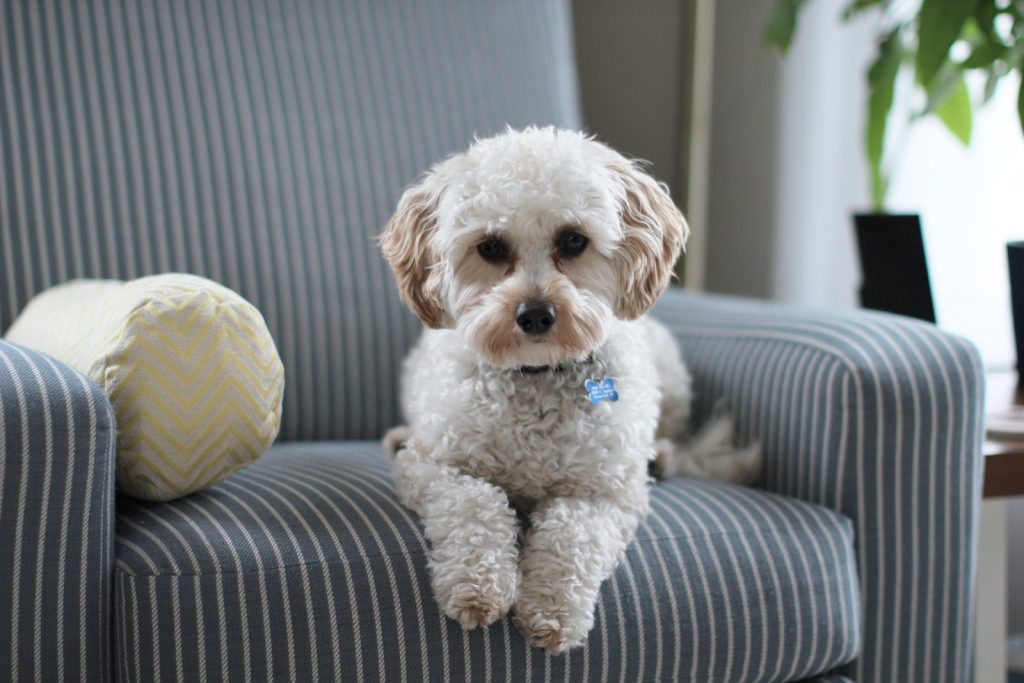
Why Is My Puppy Breathing Fast?
Puppies usually do breathe faster than a dog. This is because they have tiny hearts and are always running around and active at all times. They’re also more scared and easily intimidated by the world around them. These reasons are all normal and nothing for you to be concerned about.
However, sometimes puppies breathe fast because they are ill. When they have Tachypnea, there are no apparent reasons for why they’re breathing so fast. This will become noticeable for you if your puppy is breathing rapidly without being active, or sleeping, and there are no other changes in their environment that could be giving him anxiety or stress.
Another condition, called Dyspnea is when your puppy has to work harder to breathe than normal. This also results in fast breathing because he has to put in more effort to receive the same amount of oxygen in his lungs.
Since the puppy cannot breathe like it usually does, because of some condition with his body, he might start using other muscles of his body to help him inhale. If you notice extreme rises and falls of his chest as he breathes, this is probably because of that. You’ll also notice that noises that sound like he is struggling to breathe correctly can be heard.
Some breeds of dogs also tend to breathe more rapidly than others because of their body’s bone structure and their skull type as well. Dogs like bulldogs and pugs, for example, are quickly exhausted and become extremely hot after any physical activity, and you’ll notice that their breathing becomes labored, and they start panting.
Other breeds of dogs are less likely to exhibit these signs. You should get in touch with your vet to find out if your puppy’s breathing is part of its breed, or if it’s something to be concerned about.
Why Is My Puppy Breathing Fast While Sleeping?
Many new pet owners initially wonder why their puppy is breathing so fast while sleeping. They often breathe strangely and animatedly while asleep, and this is bound to scare you. You might see other concerning behavior as well, like paddling of the feet or sounds that sound like whimpering.
Most of the time, when puppies breathe rapidly only during their sleep, they’re dreaming just like we are. They may be having a very exhilarating dream, which involves a lot of running and action, so they’re breathing fast because they’re running.
If you notice that even when your puppy eventually wakes up, his breathing still seems unusual, you can make a video of it and show it to your vet to have it checked out.
The way humans have a REM sleep stage where their eyes move around, and they often see action-packed dreams; puppies have a stage where an observer may become frightened just watching them sleep.
Young puppies are predisposed to breathe more rapidly than an older dog, so their heartbeat is automatically faster. It might seem concerning to you at first, but if you notice that upon waking up, he seems fine, then it’s not an issue.
Why Is My Puppy Breathing Fast While in a Crate?
When I first got a puppy, I often wondered, why does my puppy breathe so fast while we’re driving in the car and have put him in a crate? This could be due to a few apparent reasons like your puppy feels hot or the crate feels congested. Make sure the place where you place the crate isn’t in an area where the sun is shining on it because this can heat the crate and make your puppy sick or nauseous as well.
Another reason why your puppy’s breathing increases is being in a new crate. While in a new container, the puppy does not know what is going on. He could be anxious or disturbed and uncomfortable.
Think about whether this breathing change happens each time you go somewhere with your pup in a crate. If it only happens in this situation, it’s pretty easy to determine that your puppy is stressing out while being in that box.
If the puppy’s breathing changes from place to place, it is up to you as the dog owner and caretaker to determine whether it is that place that is causing the anxiety. You have to keep in mind that puppies are easily scared and are afraid of being alone, primarily when they are not used to it.
Chances are if you have a puppy, then he has not experienced situations like crates and car rides as often as an older pup might have. You have to comfort him and talk to him soothingly so that he knows that although he can’t come out of the crate right now, you are right there with him, and he is not alone.
You might notice that as soon as you allow your pup to leave the crate, for example, when the car ride ends, and he is in a place where it is okay for him to walk around and be in the open again, his breathing goes back to normal. This means that the process of homeostasis has begun, and your puppy’s breathing has begun to normalize again.

What Can You Do to Stop Your Puppy from Breathing Fast?
Like any responsible pet owner, it is up to you to determine whether your puppy’s breathing changes based on the context. If rapid breathing happens only when you’re in new situations or places, then you know it is being caused because of them. In the circumstances like these, you have to try and make the environment feel less hostile to your puppy.
Let’s say you are in the car, and you can hear your puppy breathing rapidly and whimpering. This makes it evident that the car ride and the crate is intimidating and scary to him. Puppies are the kinds of animals that are not used to being in closed spaces, so you’ll have to teach them to be okay being in small boxes for car or plane rides.
Some things that you can do to make your puppy feel better is:
- Talk to him calmly and cheerfully to let him know that this situation is not scary
- Place a toy or a treat in the box to give him something that’ll keep him occupied
- Try to keep the crate open the first few times, so he knows it isn’t a confinement that he needs to be afraid of. Start closing it after you notice that he has started to accept the crate
- If you see that your puppy breathes too fast in his sleep, and it doesn’t resume at a regular rate when he wakes up, you can adjust his bed. There might be a particularly uncomfortable position that he’s sleeping in that is disrupting his breathing pattern
In situations where you can see that there are no visible causes of distress that is making your puppy breathe faster, you have to take him to the vet. Conditions like Tachypnea and Dyspnea need to be addressed by a veterinarian. If you notice that he also has pale gums, or they become white or blue, this needs to be taken to the vet as soon as possible.
When you have a dog whose breed has more difficulty breathing after exercise than others, try not to overexert it and make it do too much physical activity. Although you shouldn’t inhibit it from any physical activity altogether, because that is unhealthy, you should at least keep a watch on how much he can exercise before his breathing becomes labored.
Conclusion
So, if you’re one of those people who’ve just gotten a puppy and have been puzzled with the question of why does my puppy breathe so fast? This article should have helped you out. You’ll know better if what your puppy is experiencing is a cause of concern or if it’s something that is part and parcel of being a puppy that is seeing so many things in the world for the first time.
There are many situations when the cause of breathing problems is dangerous, and you need to get them addressed by a vet. However, it is up to you as a pet owner to know whether the problem arises because of the context, or if it is physical.
If you notice that the problem usually arises when your puppy is in a scary situation and needs to be comforted, then you know what to do. However, if you feel that it is happening despite there being no environmental factors that could be stressing him out, then you know that you have to take your puppy to a vet.
It’s always better to catch these problems early on, in case there are some mistakes that you’re making or if there are any lifestyle changes you can make for your puppy that will help him breathe faster and live a healthier life.
Paul Cook is an avid pet and animal enthusiast. He spent much of her childhood on a small farm in rural Iowa. When in high school, Paul nursed an entire box of newborn, and recently dumped, kittens back to health, and successfully found homes for all of them. He’s presently the dog-dad of nine beautiful dogs, Bruno, Lester, Sandy, Bailey, Dio, Pat, Max, Brutus, and Nora. In his career life, Paul has 20+ years of writing experience as a content writer and content collaborator across a host of verticals. When he is not writing, he is spending time with his dogs.
Did you like this article?

